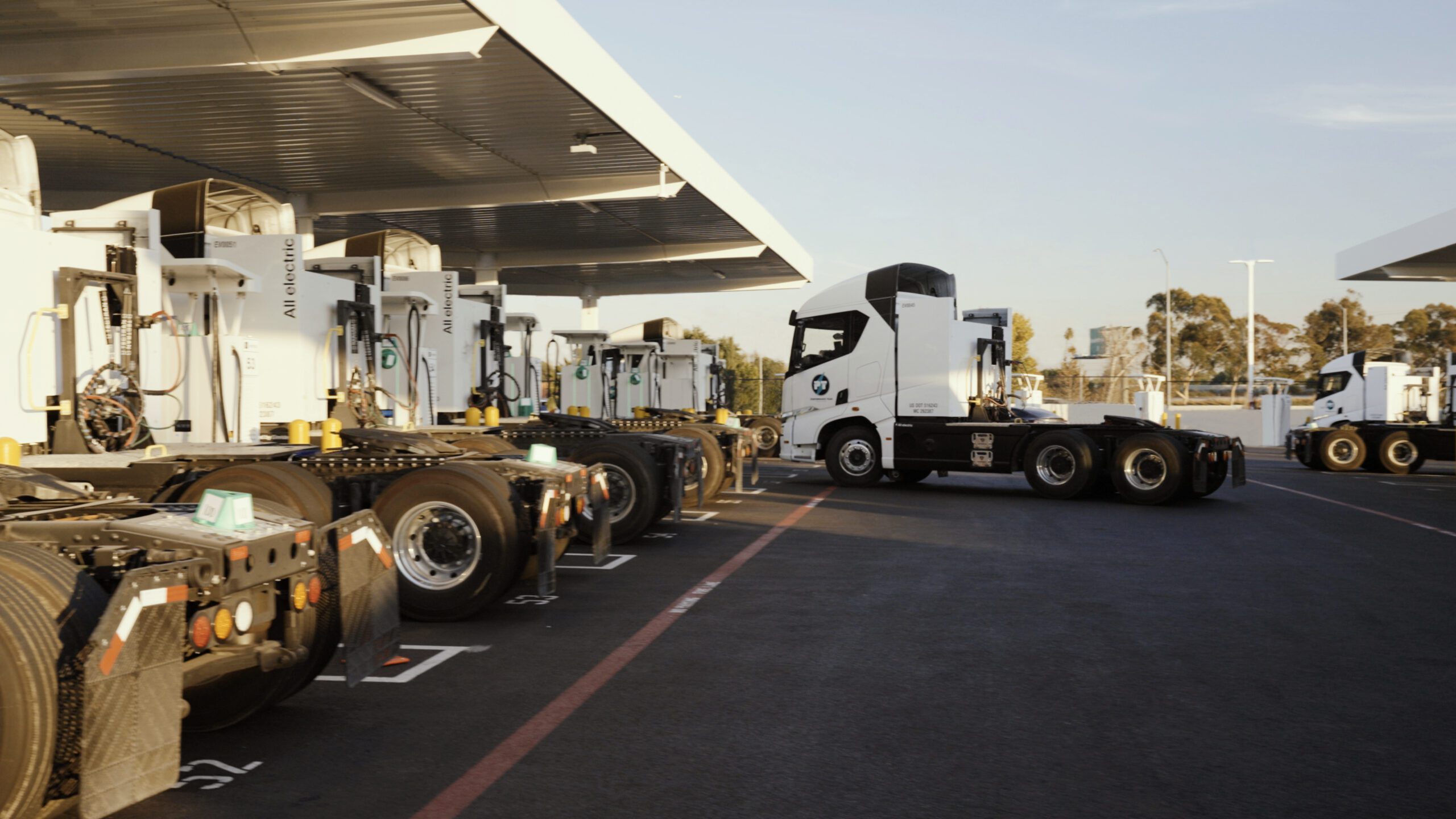The incoming influx of heavy-duty battery-electric vehicles (HDBEV) needs more than just capital to make its way onto the roadways — they need a reliable network of charging stations to ensure they continued productivity. A pair of recent of announcements by Einride and Penske/Hitachi is moving the needle in the right direction.
EV and autonomous tech provider Einride unveiled its first Smartcharger Station in the U.S., located near the Ports of Los Angeles and Long Beach in Lynwood, California. While the grand opening in slated for April, the site and its 65 chargers are serving Einride’s connected electric fleet, which includes routes for global shipper A.P. Moller – Maersk. Built in collaboration with EV infrastructure developer Voltera, the site will have the ability to charge 200 vehicles a day.
According to Einride, this location is one of many the company plans to develop across the U.S., with stations currently being pursued on both the West and East coasts and construction slated to begin later this year.
A trio of companies also recently launched a charging site to further the use of battery-electric commercial vehicles. Hitachi America, Hitachi Energy, and Penske Truck Leasing’s station includes a 10-pedestal system that can charge as many as 10 trucks up to 100 kW or five up to 200kW. The station will support Penske’s customer deployments around the Stockton, California, area.
The stations, the Grid-eMotion Fleet EV charging system, were provided by Hitachi Energy as a integrated DC fast-charging solution that offers the ability to scale up in the future and provide multi-megawatt level charging capabilities. According to the manufacturer, this new system reduces space requirements by up to 60%, as well as cutting cabling by 40%.
Other infrastructure providers, such as WattEV, are also one course to add to the number of chargers available for HDBEVs. This past January, the company announced that it had secured $75.6 Million in federal grants to expand the number of charging stations on the West Coast. The grants will be used to construct three charging depots that will be able to charge more than 160,000 trucks annually with 205 CCS chargers and 23 MCS chargers.



